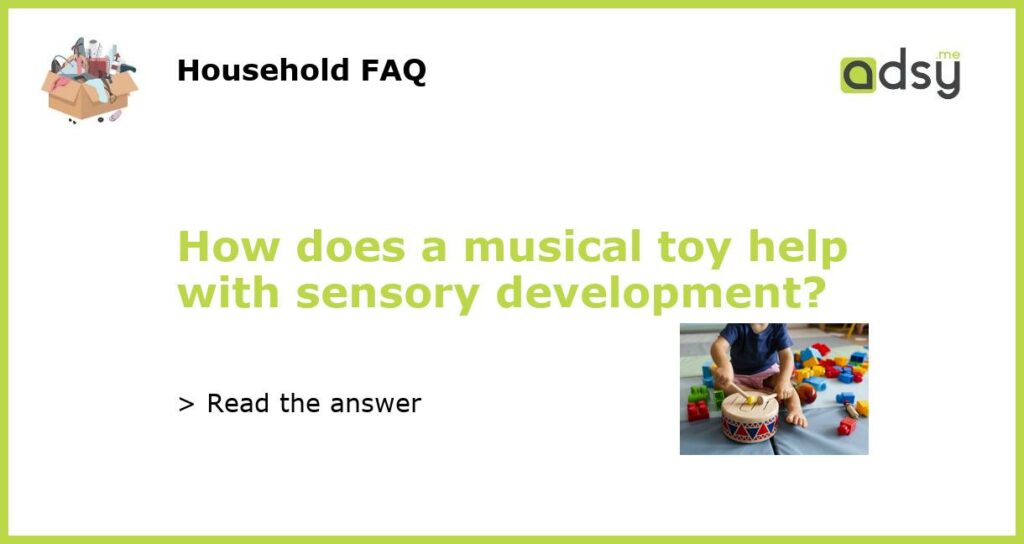Understanding Sensory Development in Children
Sensory development refers to the process by which a child’s neurological system receives and processes sensory information from the environment. The senses involved in this process include touch, sound, smell, taste, and sight. Children with proper sensory development are better suited to assess the environment around them and respond accordingly. Sensory development is crucial for a child’s social, emotional, and cognitive development.
How Musical Toys Help with Sensory Development
Musical toys stimulate multiple senses at once because they involve both sound and touch. Children get to feel the texture and weight of the toy while also hearing the sounds it produces. When children hit or shake the toy, they receive an immediate response and feedback, which helps them understand cause and effect relationships. In addition, the sound produced by the toy can have a calming and soothing effect on the child’s emotional state.
Benefits of Musical Toys for Children’s Sensory Development
Musical toys come in various forms, including rattles, drums, xylophones, and electronic keyboards, and can benefit children’s sensory development in many ways. Musical toys help children improve their fine motor skills as they learn to hold and manipulate the toy. They also help children develop their auditory skills, including recognition of sounds and pitch. In addition, musical toys can provide opportunities for socialization and communication as children play and interact with others.
Musical Toys and Children with Special Needs
Children with special needs may require additional stimulation to achieve appropriate sensory development. Musical toys can be an effective tool for practitioners working with these children to facilitate sensory development. For example, children with autism spectrum disorder may benefit from sensory toys that provide a calming and predictable experience. In contrast, children with hearing impairment may benefit from musical toys that produce visual feedback such as flashing lights.
Overall, musical toys are an excellent tool for parents, educators, and practitioners to aid in a child’s sensory development. Through sound and touch stimulation, musical toys help children improve their fine motor skills, auditory skills, and social skills. Children with special needs, in particular, can benefit from the use of musical toys to facilitate their sensory development. Parents and practitioners should consider incorporating musical toys into routine playtimes to aid in their child’s sensory development.






